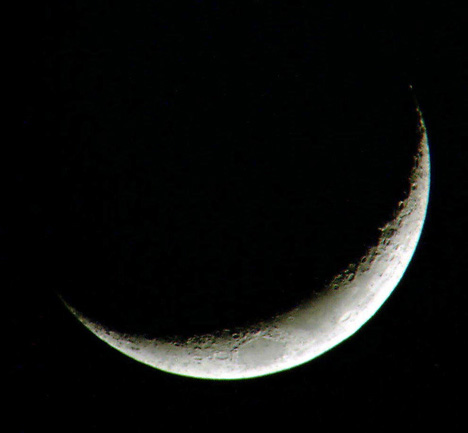Shaykh Dr. Haitham al-Haddad
The Massacre in Egypt paves the Way for an End to the Military Coup
In light of the devastating massacre that occurred from the dawn of the 14th of August 2013, in Rabaa al-Adawi and other locations in Egypt, it seems it is true that some Egyptians have a short term memory. Among these are the military coup leaders including General Abdul Fattah al-Sisi. They forgot about Husni Mubarak, a President who ruled Egypt for thirty years, succeeding previous dictators who each ruled for more than a decade. Despite Mubarak only recently being deposed of his authority, they have already forgotten how he ended up behind bars. In light of the devastating massacre that…
al-Tahwiyyah Pt 14- His Two Most Noble Names
He once said that Allāh has a particularly Great Name (al-Ism al-A’ṭham), if called upon by it He would indeed respond. حَيٌّ لا يَمُوتُ، قَيُّومٌ لا يَنامُ، He is Living and Does Not Die. He is All-Sustaining and Does Not Sleep. The author continues introducing Allāh’s description and elaborating on His Perfect Names and Attributes. His statement mentions two of His Most Noble Names: al-Ḥayy and al-Qayyūm, which also signify two of His Most Lofty Attributes. These names, which are also attributes, were mentioned together in the beginning of the greatest verse of the Quran: Ayat al-Kursi, in…
al-Tahwiyyah: Pt 11- There is Nothing Like unto Him
The Greeks would elevate their own heroes to the level of godhood through a process termed apotheosis. Heracles was one such man who they honoured as a god beneath Allāh! وَلا تُشْبـِهُهُ الأَنامُ He does not resemble mankind. Allāh does not resemble any of His creation; not in His Lordship, His Deification, nor in His Attributes. Allāh, the Most High, said: ‘There is nothing like unto Him’, making it clear to His creation that He is not from them nor like them, nor are they like Him. The author is negating both the notion of anthropomorphism, which…
Was it wrong to start Ramadan 1434H on Wednesday 10th July 2013?
The high court in Saudi Arabia requested people to sight the new moon of Shawwal for this year 1434H (2013) on Tuesday 6th Aug as there was a possibility that the first day of Shawwal (Eid al-Fitr) could have been Wed 7th Aug 2013. Was it wrong to start Ramadan 1434H on Wednesday 10th July 2013? All praise be to Allah and may peace and blessings be upon His Messenger, salla Allah ‘alayhi wa sallam. The high court in Saudi Arabia requested people to sight the new moon of Shawwal for this year 1434H (2013) on Tuesday 6th Aug as…
al-Tahwiyyah: Pt 13- His Mighty Will
The Prophet SAW would teach his Companions the pure belief of Divine Decree (qadar). One day, the great Companion Ibn ‘Abbās, who was still a young boy at the time, was sat behind the Prophet SAW on a mount when the Prophet said to him: ‘O boy, I shall teach you some words. Be mindful of Allah and He will take care of you. Be mindful of Allah and He will protect you. If you ask then ask of Allah, and if you seek help then seek help from Allah. Know that if the nation were to gather together to…
al-Tahwiyyah: Pt 12- How Allah guides and misguides
He gives guidance to whomever He wills, protects them and keeps them safe from harm as an act of grace. And He leads astray whomever He wills, abases them and afflicts them out of His justice. يَهْدِي مَنْ يَشَاءُ وَيَعْصِمُ وَيُعَافِي مَنْ يَشَاءُ فَضْلاً، وَيُضِلُّ مَنْ يَشَاءُ وَيَخْذُلُ وَيَبْتَلِي عَدْلاً The life of this world has been created beset with trials and tribulation. This is something Allāh, Exalted is He, intended and with great wisdom. Allāh stated that He: ‘created death and life to test which of you is best in action’, and that: ‘We created man from a…
Al-Tahwiyyah: Pt 10- Beyond Imagination
The author continues introducing Allāh’s description to us. The fact that the author continues to describe Allah affirms the notion that even though we cannot perceive the reality of Allah’s attributes we can understand their meanings. لا تَبْلُغُهُ الأَوْهامُ، وَلا تُدْرِكُهُ الأَفْهامُ، ''No imagination (wahm) can conceive of Him, and no understanding (fahm) can fathom Him.'' The author continues introducing Allāh’s description to us. The fact that the author continues to describe Allah affirms the notion that even though we cannot perceive the reality of Allah’s attributes we can understand their meanings. All that we know of Allah is what…
Al-Tahwiyyah: Pt 9- He Takes Life Without Fear
مُمِيتٌ بـِلا مَخَافَةٍ، بَاعِثٌ بـِلا مَشَقَّةٍ ''He causes death without fear, and He resurrects (the dead) without any effort.'' Such a statement echoes the perfection of Allah’s Lordship over all that exists and lays bare the triviality of everything that is other than Him; truly: ‘There is nothing like unto Him’ Allāh is far above the emotion of fear. He does not fear anything or anyone; rather He is: ‘the Doer of whatever He Wills.’ He takes the life of whomsoever He wishes; and if He so wished, He could take the life of all creatures as: ‘He is over…
Al-Tahwiyyah: Pt 7 & 8- The Perfect Creator of all – Perfect Life & Perfect Existence
خَالِقٌ بـِلا حَاجَةٍ، رَازِقٌ لَهُمْ بـِلا مُؤْنَةٍ، Pt 7; He creates without need to do so, and provides without any effort (bila mu’nah). Allāh, Exalted is He, created the creation in order that they worship Him. If some refuse to worship Him, His greatness is not diminished in the least, whereas the worship of those that submit themselves to Him does not help anyone save themselves: ‘O men! It is you, who stand in need of God, whereas He alone is self-sufficient, the One to whom all praise is due.’ The statement of the author: ‘and provides for His creation…







